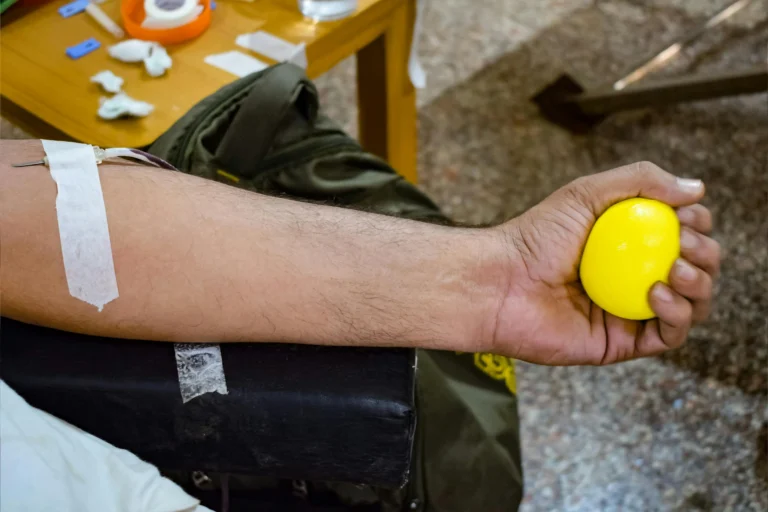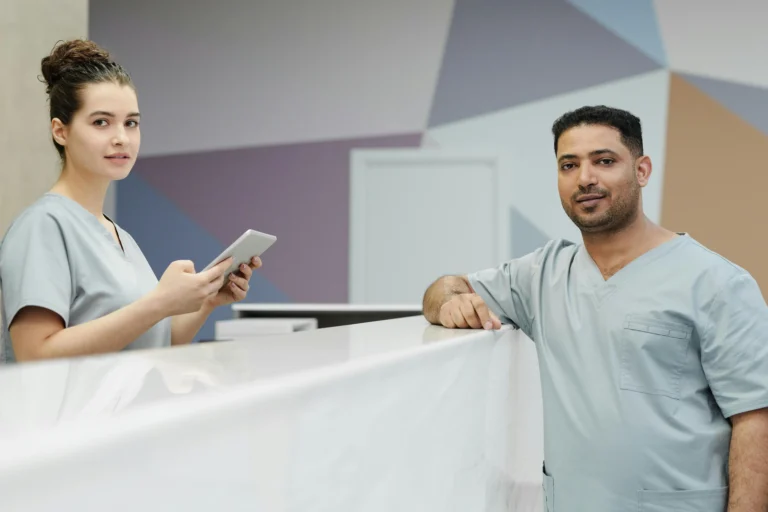Children Wellness Centers: A Parent’s Complete Guide

What Exactly Is a Children’s Wellness Center
At a Children’s Wellness Center, the whole child is cared for… physically, mentally, and developmentally. These centers are unconventional in that they treat your child as a whole, not a stone to be dropped in the shoe of traditional pediatrics. Whether it is routine physicals, mental health services, nutritional consultations, or even physical therapy, wellness centers offer a comprehensive selection of services for the health and development of your child.
What Services Can You Expect?
Children’s health centers house a variety of specialists under one roof in a powerhouse of kid-centric care. Here’s the lowdown on the key services that set these centers apart:
Pediatric Care
The bread-and-butter service, for sure. Think routine immunizations, growth checks, treatment of common illnesses and watching for those developmental milestones. Instead of the typical checkup that addresses a particular problem, these centers monitor your child’s growth over time, watching out for long-term health trends.
Mental Health Counseling
Mental health is no longer the “silent” part of children’s health care. And these days, centers hire therapists and counselors who specialize in childhood anxiety, behavioral issues, ADHD and even trauma. Between 1 in 5 and 1 in 6 children 2 to 8 years of age have a diagnosed mental, behavioral, or developmental disorder, according to the World Health Organization, and early help can alter trajectories for the better.
Nutrition Counseling
The days of one-size-fits-all diets are over. At these centers, registered dietitians create kid-friendly, achievable meal plans with a goal of fueling growth and brain development in children. They help parents figure out how to deal with picky eating, food allergies, and finding a balance between treats and nutrition, changing mealtimes from battlegrounds into bonding time.
Physical Therapy
For a child with motor delays, injuries or coordination challenges, physical therapy is not just rehab but play with a purpose. Children are strengthening, gaining balance and becoming more confident through playfully targeted exercises. The American Physical Therapy Association details early intervention here as a key to shaping motor skills, which in turn help reduce lifelong health issues.
Developing & Behavioral Therapies
Many centers also provide speech therapy, occupational therapy and behavioral support all of which can help kids master skills they need for school and social life.
Why scramble for appointments at multiple places when you can purchase this all in one? And for parents with busy lives, that convenience and coordination of care is a game-changer.
What Makes Children’s Wellness Centers a Game-Changer
Conventional pediatric practices largely address illness as it presents. Children’s wellness centers are one step removed from the institutional medicine; they focus on prevention, early diagnosis and healthier whole-child development.
Here’s why that matters:
- Interconnected Care: Prudent Metaphors: Holistic Care: These facilities understand that physical health, mental health and development are cause and effectively effect related. For instance, anxiety that goes untreated can interfere with appetite, sleep and even the ability to fight off infection. Tackling all of these layers in unison is more effective overall.
- Early Intervention: It’s always a biggie, if you can catch developmental delays or emotional stuff early on. The CDC says that early mental health therapy can lead to improved academic and social performance for a child.
- Efficient Care: Replace one visit where your child is seen by a pediatrician, a counselor and has a nutrition work-up. It helps cut down back and forth and make sure you’re all on the same page.
- Child-Happy: These centers don’t only accept kids, they rejoice in them. Play zones, vibrant decorations and staff members specially trained to interact with children transform doctor visits into less frightening ordeals.
What Happens at Your Child’s Visit
If you’re imagining a chilly, antiseptic exam room, think again. Here’s how it typically works:
- Welcome & Intake: In addition to your typical health history, you will receive a thorough questioning on emotional health, diet, sleep and developmental achievements. This big picture helps to create a full image, and not just a snapshot.
- Evaluation: Your child’s evaluation may include developmental screenings, behavioral questionnaires and, depending on your child’s age and needs, a physical examination. Such tools can pick up early signs of problems including speech delays or ADHD.
- Specialist work, though you know, the real magic? Pediatricians, therapists and nutritionists frequently work on site together in what’s called a multidisciplinary approach to your child’s needs, crafting a building-wide care plan. No passing the buck here.
- Personalized Plan: You’ll walk away with clear next steps whether that be therapy appointments, exercises to do at home or nutrition adjustments. The plan is manageable for your family’s lifestyle, and therefore easier to stick to.
- Child-Friendly Touches: Many waiting rooms feature toys, books or tablets. Child psychologists on staff ensure that visits stay stress-free, so your kid might even enjoy coming back.
Choosing the Right Children’s Wellness Center
Selecting a center is more than just a matter of geography although that, too, is important. Here’s what to prioritize:
- Match your child to the right service: I need mental health counseling? Developmental therapy? Nutrition guidance? Ensure the center provides the things in life that are important for your family.
- Qualified and Licensed Professionals: Make sure pediatricians are board certified, therapists are licensed, and nutritionists are registered. It’s not a resume this is how to make sure they’re up-to-date on best practices.
- Parent Reviews & Testimonials: There is nothing better than firsthand experience. Search for centers with positive reviews of compassionate care and positive results. For instance, you can refer to the advanced wellness 100a insurance reviews to find out trusted companies.
- Stop By: Kids can get a quick sense of how kid-friendly a space feels during a tour. Is it warm and welcoming? Is the staff patient and engaging? Trust your gut.
- Insurance & Cost Transparency: Ensure insurance is accepted and discuss out of pocket costs in advance. Some centers provide sliding scales or payment plans. Find out more about how to reduce costs for therapy ever here in the cost of CBT therapy article.
- Community Integration: Extra credit if the center is affiliated with area schools or community programs that indicates a commitment that goes beyond the clinic walls.
Insurance and Cost: The Bottom Line
Health care costs can escalate rapidly, and in many cases wellness centers are working to make care affordable:
- Look at Your Insurance Coverage: Call up your provider and make sure you know what services are covered. Regular pediatric visits are generally covered, but therapy or nutrition counseling may have caps.
- Fees on a Sliding Scale: One is available Even if you don’t have health insurance, you have options for affordable treatment.
- Package Deals: Many offices offer packages programs or memberships that can save you money if you need to go to them for care over a period of time.
- Keep Good Records: Keep all appointments and payment records; you might be eligible for reimbursement or potentially able to claim a deduction on your taxes for the cost of medical treatment.
- Public Programs: Medicaid and CHIP offer a lot of wellness services for children in families who qualify so look it up if cost is an issue.
FAQs about Wellness Centers
What do children’s wellness centers actually provide?
Integrated pediatric and mental health, nutrition, physical and developmental support.
What sets these centers apart from regular pediatricians?
They bring a variety of specialists together in one location to address the complete needs of the whole child, with a focus on prevention and development not just illness.
What do I need to bring for my child’s first visit?
Records of health, a list of questions or concerns, insurance information and your child’s favorite comfort item.
Is insurance going to cover this care?
Most of the time, yes but it can vary. As always, check with your provider before you schedule.
How can I find a good center near me?
Begin with your pediatrician’s suggestion, read online reviews from parents and tour prospective centers to get a vibe.






